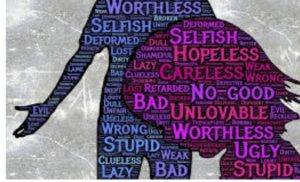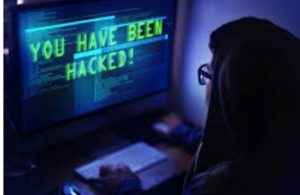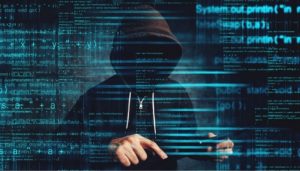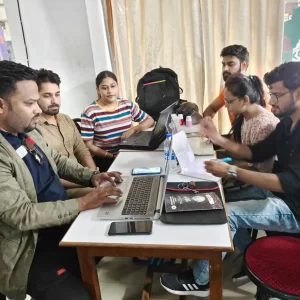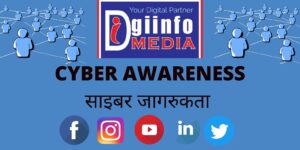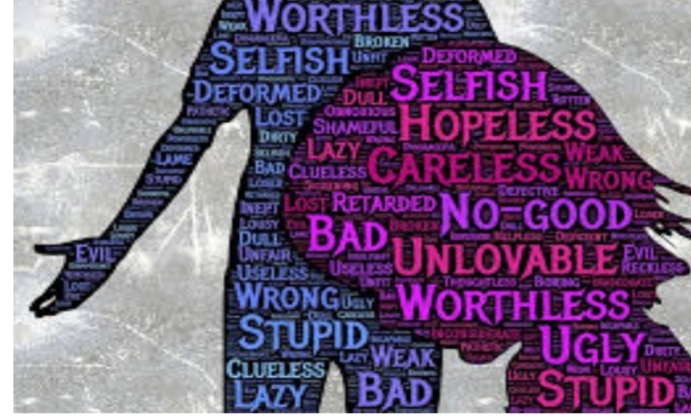
E-classes hacked to share obscene content
– Kajal Sharma
“Technology is a useful servant but a dangerous master.”
– Christian Lous Lange
Social networking links individuals, regardless of their territorial borders. It connects an person to the numerous individuals from diverse cultures. Sites such as Facebook and Twitter have built online forums where people can post their personal details if they wish. Social media used to be the platform for learning about their nations or for maintaining certain relationships. Yet social networking is also becoming a tool for facilitating communication or engaging with just click only . For instance, Facebook- is meant to help connect with an person. Our lives had been influenced by social media. People have an ability to communicate their thoughts to others through a platform because of social networking.
With changing time and dimensions crime has also evolved , therefore crime is not limited to just physical but have even extended to cyber crimes as well. Online crimes like cyber bullying , hacking , phishing schemes, cyber stalking , online harassment comes under purview of cyber crimes therefore cyber crimes are those crimes which basically have an involvement of either networking or computers.
All provisions related to cyber crimes are dealt under Information Technology Act,2000. Along with facilitating the filing of records of electronic nature of this Act is to provide a legal recognition to electronic –commerce .
Some examples of cyber crimes includes : Cyber stalking , online harassment , phishing schemes , Invasion in privacy ,Theft scams etc. India has experienced a tremendous growth in cyber crimes . One wrong click and you will lose all your files , pictures along with your privacy . Some applications requires access to not only your emails but your gallery and even to your contacts which ultimately leads to exploitation. Users agree to their terms and conditions even without reading them and this carelessness leads to huge loss not only mental or physical but that times financial also. There must be awareness camps for enlightenment of citizens regarding various cyber crimes .
Cyber Crimes are growing tremendously and many innocent people are being strangled in phishing , online thefts , children are being subjected to agony and pain due to intrusion into their privacy, private life as well this also portrays how everyone is being affected by these cyber crimes .
It can be observed under Indian Penal Code , 1860 that most of the offences are described as well as well as punishment for such offences has been also provided but unlike Indian Penal Code neither National Cyber Security Policy 2013 nor Information Technology Act , 2000 defines term cyber crime.
Cyber – crime is any offense/crime which is carried out using computers, software, web and the internet or any other digital mode . Perhaps the most popular method of cyber attacks is identity fraud in which hackers use the web to deprive certain people of their personal details, other confidential & sensitive information – data.
Cyber – attacks have become one of the world’s most critical issues in recent days. It incorporates unauthorized access to data and data protection breaks, such as confidentiality, login information, etc .Cyber theft is a facet of cyber – crimes, which implies a theft which has taken place via medium of computer or any digital means .Identity fraud, password theft, theft of data, Internet time theft, etc. are perhaps the most prevalent kinds of cyber theft.
NEED FOR CYBER LAWS
In today’s era it can be seen that everything is somehow related to technology, now be live in techno-savvy environment .World is evolving into more of digitally advanced space so is the crime.
With changing in time and advancement in technology can be seen too. This can be seen in way how internet has expanded its branch into e-commerce, e- business, e-governance. People now live in a cashless society i.e payments are now made via credit/debit cards , Paytm, Google pay, BHIM. All issues of legal nature which are anyhow related to internet usage comes under ambit of cyber laws .
Cyber law deals with basically regulation of computers , software and of the Internet .Cyber law is significant because it penetrates almost every dimension of transactions and activities and involves the world wide web and cyber world, internet & web .
Cyber law is the component of the broader legal structure concerned with Internet, cyberspace and their respective legal issues. Cyber law encompasses a relatively wide field, including a range of subtopics including freedom of speech, network/internet connectivity and usage, and internet privacy.
Since now Internet is also one of the fundamental rights depicts how it has become a necessity and how number of users of internet has bloomed which has ultimately lead significant need for cyber laws .It can be seen that almost everyone and everything revolves around internet and therefore everybody is affected by cyber law.
ANALYSIS
The digital age is empowering billions around the world with the benefits of information and communication technologies. The whole world is turned into a globally civilized village . The Internet has proved to be mankind’s greatest innovation. But the transcendental power of the Internet, in the form of cybercrimes, has created the main threat to society. The key perpetrators of the transgression are women and children. Cyber-obscenity crime is not only limited to women as their perpetrators, but children have also become a part and parcel of it either as guilty or as offenders.
A class 10 student reportedly logged into a class 9 online class and posted obscene content. Cyber experts said they have received a number of complaints involving cyber bullying and sextortion during the lockdown. Amidst the coronavirus pandemic, students and teachers are facing a new challenge during their online classes. Hackers are targeting e-learning classes and are posting obscene content.
After the lockdown, the government had shut schools and colleges among other institutions in view of the COVID-19 pandemic. The schools later shifted to online classes to continue the academic session.
According to a report in Times of India, new cases of hacking of online classes have emerged from Mumbai, Maharashtra. A class 10 student reportedly logged into a class 9 online class and posted obscene content.
In another case, an unidentified person hacked into an e-class and shared obscene messages. Later, the school stopped online classes for a few days after the incident.
A parent of a student said that teachers have now started taking attendance once the class begins and don’t allow students to join in when they know all are in.
Obscenity is often acknowledged as “lewd, impure, immoral and designed to shock man’s moral sense by disregarding chastity or modesty. The word obscenity isn’t really ambiguous because it’s a well-understood word even though people vary in their attitude to what’s obscene and what isn’t.
OBSCENITY : INDIAN LEGAL PROVISIONS
Indian Penal Code, 1860
The Indian Penal Code had not clearly defined the words obscene and obscenity. Section 292 of the IPC only states that if any material taken as a whole is lascivious or appeals to concupiscent interest and tends to deprave and corrupt the persons who read, see, or hear the contained matter will come within the ambit of obscenity. In addition, IPC Section 294 punishes a person for having committed obscene act in public. Section 293 also forbids the selling of obscene items to young people, and prescribes the same penalty.
Section 292 also runs counter to Article 19(2 ) of the Constitution on freedom of speech and expression, but the Constitution provides that fundamental rights are subject to reasonable restrictions in order to prevent public indecency. Similarly, IPC section 354 and section 509 are also applicable for punishing on-the-job crimes against sexual harassment of women
INFORMATION TECHNOLOGY ACT , 2000 Technology Act provides for rules to prohibit obscene material in electronic media.
Section 67 of the IT Act sanctions the dissemination of obscene content in electronic form. It should be noted that any obscenity in electronic form can only be prosecuted under the IT Act and not under the IPC, because section 81 of the IT Act speaks of its overwhelming effect over all laws.
In the very case of Avinash Bajaj v. State (NCT of Delhi), provisions of both the IT Act as well as the IPC are considered together when there is need. As the Internet is of a global and diverse nature, Section 75 of the IT Act also deals with issues related to the online transmission of obscene content from other jurisdictions.
OTHER LEGISLATIONS
The prohibition of such acts is also addressed in Sec 2(c), Sec 3, Sec 4 of the Indecent Representation of Women Prohibition Act , 1986. The Cable Television Networks Control Act, 1995 forbids television transmission of pornographic acts. Section 4 and Sec 5A of the Cinematograph Act, 1952 provides for film review prior to release. The Youth Harmful Publication Act, 1956 bans publications that can corrupt a child.
OBSCENITY TEST :
1. HICKLIN
In the case of Regina v. Hicklin, the Hicklin ‘s test was set in English law. In Hicklin’s Test Procedure, a report may be judged for obscenity based on the isolated portion of the research found out of context. When applying Hicklin ‘s test the work is taken from the whole context of the work and it is then shown that if the research has some obvious effect on most vulnerable readers, such as children or weak-minded adults.
2. ROTH
In 1957, a new criterion was established by U.S. courts to determine obscenity in the case of Roth v. U.S. In this case , it was held that only certain sex-related materials that had the potential of enticing lustful thoughts were considered lewd and the same must be judged from an average person’s point of view by applying existing community standards.
This test was clearer and narrower than the Hicklin test, because it does not isolate the alleged content but restricts itself to the prevailing theme of the material as a whole and tests whether or not it has any redeeming social meaning if taken as a whole.
CASE LAWS
• The SC had followed the english Hicklin test in the judgment of Ranjit D. Udeshi v. State of Maharashtra ( 1965), which had posed a few problems. IPC Sec 292 allowed any substance to be taken as a whole while the Hicklin test allowed analysis of the material content in isolation. But the two were in conflict of interest. There were also other loopholes which caused the courts to undermine the Hicklin test.
• In the case of Aveek Sarkar v. West Bengal State , the Supreme Court had claimed that naked/nude, within the context of Sec. 292, can not be deemed obscene per se unless it arouses a feeling of sexual desire. For this particular case , the court ultimately disapproved after 50 years of applying the Hicklin test, and accepted the Roth test. The goal behind it was to determine cases with the contemporary national standards in mind and not the category of vulnerable individuals.
• In 2006, in Ajay Goswami v. UOI ‘s case, the Supreme Court claimed that the community-based norm test has now become obsolete and introduced a new test called a responsible reader test in which a reader should be cautious in this technological era. Regarding the online form of obscenity Avnish Bajaj v. State, in which the question was whether or not the website was responsible for the publication of the MMS. In this situation, the website which was merely an agent has been held liable for the same.
•In M. Saravanan & Dr. L. Prakash v. State, a physician has been punished under Section 67 of the IT Act for the online distribution of a woman’s lewd photos and videos for the sole purpose of making out money .
REFERENCES
• https://www.timesnownews.com/mirror-now/in-focus/article/mumbai-unidentified-men-hack-online-classes-post-obscene-videos-sextortion-and-cyber-bullying-on-rise/612696
• http://blog.ipleaders.in/can-shttpsocial-media-misused/
